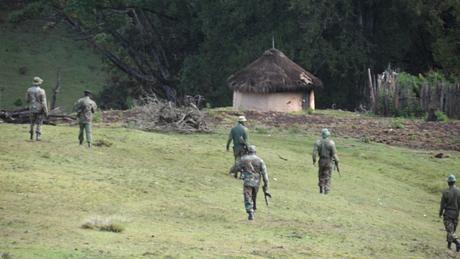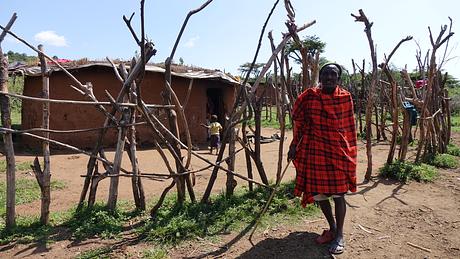Kenya: Indigenous person killed in the name of conservation
January 17, 2018
 © Yator Kiptum
© Yator KiptumThis page was last updated in 2018 and may contain language which is now outdated.
A man from the Sengwer tribe was killed yesterday by guards working for the Kenya Forestry Service (KFS). Another man was wounded.
This brutal attack follows several recent violent operations to evict Sengwer tribespeople from their land.
Dozens of armed security officers burned people’s homes, food stores, and possessions, and killed livestock, to force them out of the Embobut Forest where they have lived for generations.
The attacks started at the end of December.
Milka Chepkorir, a Sengwer woman, says that the destruction of their homes in the attacks results in: “a loss of family ties as family members are scattered and scared, and sexual abuse and harassment and psychological torture is associated with the horrible acts of evictions.”
Despite the threats and violence, many Sengwer have vowed to resist. One woman declared: “We are going nowhere, even if the government decides to kill us here.”
The EU is funding a conservation project in the region, which aims to protect water sources in the hills. It condemned the killing and announced it is suspending its support for the project.
The Sengwer are calling on the government to uphold their right to live on their ancestral land, and to consult with them urgently on how best to work with them to conserve their forests.
Eviction of the Sengwer started under British colonial rule.
In 2014 the KFS and police evicted thousands of Sengwer from their forest homes, forcing many to live in caves or temporary structures.
Following more harassment in 2016, David Yator Kiptum, Executive Director of the Sengwer Indigenous Peoples Programme said: “Evicting members of the Sengwer community from our ancestral home is not a solution to conservation. Neither is it a solution to climate change.”
The Sengwer number about 33,000 people, of which about 13,500 live in the Embobut Forest. Here they hunt, gather honey, plant crops and rear small numbers of livestock.
Like many tribal peoples they have a deep knowledge of the ecology of their forests, which they have maintained for generations.
The evictions are in violation of international law, and are destroying the people who know best how to conserve the forest.
Three independent UN experts have raised their concerns about the attacks and evictions.




